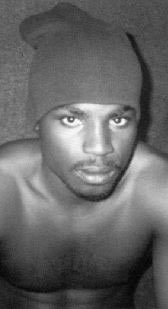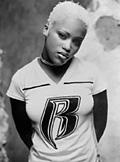“You that Dr. Octagon ass muthafucka, right? I’ll tell you what. [Sound of gun cocking] Take two of these and call me in the muthafucking morning. [Two gun blasts] I’m Dr. Dooom.”
This is how Kool Keith, the multimonikered former Ultramagnetic MC, opens his latest album. For the record, the album is called First Come, First Served, released on Keith’s own Funky Ass imprint under the alias Dr. Dooom. This is not to be confused with his forthcoming Columbia project, released under his own name but recorded as Black Elvis. And if you’re not already lost, Keith has also taken spins as Sinister 6000 and the aforementioned Dr. Octagon. After waking up a few too many mornings with identity questions, it’s no surprise Keith had to put one of his lives to death.
But to hear Keith tell it, it was more about the style biters. Putting Octagon to rest was the only way he could maintain a semblance of control over his ideas, ones that have been viciously bit time and time again. Indeed, the past few years have seen an absurd proliferation of hip-hop renaming. Ostensibly done for the sake of creative freedom, this sonic schizophrenia instead typically covers up shoddy output; it’s a lame attempt at hornswoggling the public into respect for an artist’s “diverse” talent.
Take the Wu-Tang Clan. A few years back, novel monikers began popping up on Wu-Tang solo projects—Ghostface Killah, a.k.a. Tony Starks; Method Man, a.k.a. Johnny Blaze; and so on. Influenced by comic-book lore, the Wu had found a way of spinning an ever-more-intricate group mythology, building bridges between ancient Chinese swordsmanship and contemporary animated heroism. And then, to add edges of danger to the equation, the Wu-Gambinos came to the fore, a name which let the Wu cats fancy themselves members of an elite crime syndicate (though it should be said that when a New York court tried to argue the same, no members of the Clan came to its aid). As the song went, the Wu-Tang Clan ain’t nuthin’ to fuck with.
To their credit, though, they rarely let those personalities interfere with their words (forgetting Method Man’s lamentable turn as The Riddler on the Batman Forever soundtrack). Their turn as Mafiosi, however, opened ugly floodgates for the rest of the hip-hop world to add silly names to their r鳵m鳠(Shaquille O’Neal=Enrique Casales?). Yet of all the fake thugs (no love, you get the slug), Nasty Nas was the most reprehensible, changing names—and concordant personalities—like Diana Ross changed outfits at the Grammys. First there was Nasty, the underappreciated Queensbridge MC. Then, when the shine started to come, he was transmogrified into Nas Escobar, the drug-running kingpin of rap’s Glitter Age. Shunning his introspective past, Nas next regaled us with tales of the trife life and lush living, wearing fur and sipping champagne with impunity. Despite the profound hollowness of the switch, the whole enterprise smacked philosophical, demonstrating an innate understanding of both the fickleness of his people, as well as his own internal tug-of-war. Instead of trying to rationalize his diverse ends on record, he saved himself the self-analysis and just went for the mask.
Yet is this the mask Paul Laurence Dunbar wrote of so many years ago, the one used to inure oneself to the systematic abuses of racist society? Could the perpetual rewriting of identity scripts be a means of eluding essentialization? I might be sympathetic to that argument if the new personalities weren’t so damned regressive in and of themselves. RZA’s Bobby Digital incarnation had little to do with technology and everything to do with misogyny. Even Kool Keith’s sidekick Sir Menelik put on the Scaramanga cap when rhyming about floss. Meanwhile, forthcoming albums from last-summer thugs Cam’ron and Noreaga also feature new, even-more-stunted-growth identities—the former as Killa Cam, the latter as Melvyn Flynt Da Hustler. Specifics are, I trust, not needed.
So rappers are in danger—not, as Eminem suggests, from outside invaders (“The Shady is really a fake alias/to save me just in case I get chased by space aliens”)—but from their own identity insecurities. Instead of multiple personalities contributing to a complex whole, each character now has its day on wax to tell its pithy tales, writing off any sense of integrity in the process. In fact, out of the latest crop of personality switches, only Mase kept it (semi-)real. Even though he’s found God, his previously recorded, name-brand stylings were kept intact on his latest album, Double Up—almost a sign of maturity. Yet upon listening to his pre-conversion drivel, you can’t help but think that passing it off under a mythified alias wouldn’t have been such a bad idea after all. Now he’s got no one to blame but himself.







